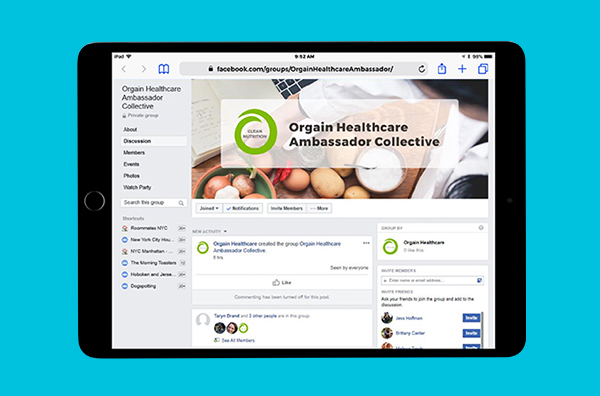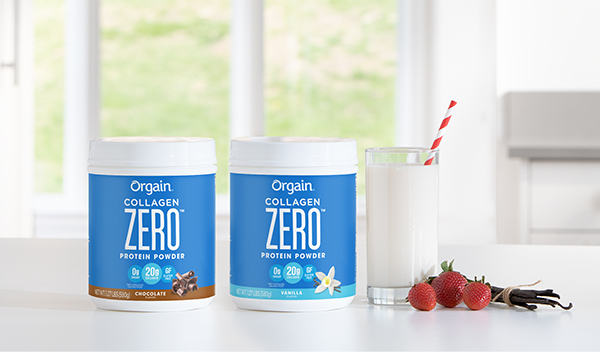
Medical Nutrition Therapy for Gastroparesis

Gastroparesis is a complex medical condition characterized by delayed gastric emptying of solid food in the absence of a mechanical obstruction of the stomach. Nausea, vomiting, early satiety, postprandial fullness, acid reflux, weight loss, and abdominal pain are common signs and symptoms of this chronic disorder. According to the International Foundation for Gastrointestinal Disorders, it is estimated that up to five million people in the United States have gastroparesis, while many remain undiagnosed. Evidence also suggests that gender-related differences are prominent in gastric motility functions and with gastroparesis, women appear to be more susceptible than men.1 However, the etiological connection remains a topic of further investigation.
In general, the pathophysiology behind idiopathic gastroparesis is varied and often depends on the disease etiology, which includes diabetes, postoperative causes and neuromuscular disease. While idiopathic gastroparesis is the most common form of gastroparesis, diabetic gastroparesis (DGp), a component of autonomic neuropathy resulting from long-standing unmanaged type 1 and type 2 diabetes, accounts for approximately one-third of all cases of gastroparesis.2
Since there is no cure for gastroparesis, the focus is on the treatment and alleviation of GI symptoms. Medical Nutrition Therapy (MNT), nutrition-based treatment provided by a registered dietitian nutritionist, and medication often play a large role. In 2013, The American College of Gastroenterology (ACG) issued clinical guidelines for the management of patients with gastroparesis, which include nutritional supplementation, pharmacological and surgical therapy and glycemic control for people with diabetes (PWD). These recommendations advise that oral dietary modifications be considered as a first-line therapy in individuals with mild gastroparesis.3 If MNT does not completely alleviate symptoms, medications may be added. If inadequate oral intake is present despite modifications in food consistency and concomitant medication, which is typical of severe gastroparesis, enteral nutrition via jejunostomy tube may be needed.
Considering the goal of maintaining oral nutrition and hydration, the role of Registered Dietitian Nutritionists (RDN) in the management of gastroparesis is imperative. RDNs administer medical nutrition therapy (MNT) with recommendations for fluid, foods, vitamin and/or mineral supplementation and oral nutrition support, if needed, to help prevent malnutrition and dehydration and correct electrolyte abnormalities. Since dietary tolerance and symptoms vary, nutrition interventions should be individualized to maximize nutritional benefits. MNT for gastroparesis usually focuses on strategies to optimize gastric emptying, such as small, frequent meals, 4-6 times per day. Since dietary fat and fiber tend to delay gastric emptying, a diet that is low in fat and fiber is advised. Foods high in fiber, especially nondigestible (insoluble) fiber, such as apples, Brussels sprouts, bran, nuts and seeds and legumes, should be avoided. High-fat solid foods should also be avoided, however, liquids that are rich in fat, such as nutritional shakes, may be tolerated and can support calorie and nutrient needs without exacerbating symptoms. Additionally, with DGp, glycemic management with diet and medication is often recommended. Other nutrition interventions to encourage symptom relief include chewing food well before swallowing and in this case, any dental concerns should be addressed. Sitting upright or walking for 1-2 hours after a meal may also help promote gastric emptying.
In an effort to support individuals suffering from idiopathic gastroparesis or DGp who are seeking cleaner nutrition as part of their oral diet or enteral nutrition feeding regimen, the Orgain 20g Clean Protein Shake, Orgain Protein Plant-Based Protein Powder and are great options as they can be a nutritious source of calories and protein as part of a therapeutic diet for gastroparesis. The 20g Clean Protein Shake provides 130 calories, 1-2g of dietary fiber, 9-11g of total carbohydrates and 2g of total fat per 11-ounce shake and the Plant-Based Protein Powder provides 140-150 calories, 4-6g of dietary fiber, 15g of total carbohydrates and 4-5g of total fat per serving. Since nutritional needs vary between individuals, further supplementation may be necessary, and tolerance may vary depending upon the severity of gastroparesis.
Healthcare Professionals continue to successfully use Orgain products for patients with gastrointestinal (GI) disorders, and here is one of the many testimonials shared with us:
“As an outpatient digestive health dietitian, I see a lot of patients who are underweight or undernourished due to difficulty eating given their individual digestive health issue. Orgain has been a lifesaver for many of these patients. I have found especially in my gastroparesis patients that Orgain is well tolerated and effective for not only supplying needed nutrients but calories and protein in a convenient and tasty manner.” – Nancee Jaffee, MS, RDN, Digestive Diseases Dietitian
Check out the following resources to learn more about gastroparesis and help spread awareness:
American College of Gastroenterology: https://gi.org/topics/gastroparesis/
International Foundation for Gastrointestinal Disorders: https://aboutgastroparesis.org/common-questions-about-gastroparesis.html
National Institute of Diabetes and Digestive and Kidney Diseases: https://www.niddk.nih.gov/health-information/digestive-diseases/gastroparesis/symptoms-causes
1 Gangula, P.R.R., et al. Digestive Diseases and Sciences. 2011. Sep; 56(9): 2520-2527. doi: 10.1007/s10620-011-1735-6
2 Krishnasamy, Sathya, et al. Diabetes Ther. 2018; Jul; 9(Suppl 1): 1-42; doi: 10.1007/s13300-018-0454-9
3 Camilleri, Michael MD, et al. The American Journal of Gastroenterology. 2013; 108(1): 1-42; doi: 10.1038/ajg.2012.373

Exploring the Role of Prebiotics, Probiotics and Postbiotics

In recent years, the gut microbiota has become a focal point of modern research and a ubiquitous topic of scientific and popular interest. The gut microbiota is the complex and dynamic population of microorganisms in the human gastrointestinal (GI) tract, where it is suggested that about 70-80% of immune function resides. As scientists discover more about the relationship between the gut microbiota and health, the potential roles and benefits of probiotics, prebiotics and, the evolving term, postbiotics, have been examined more closely. While each of these “-biotics” family members sound similar, they are uniquely different.
The International Scientific Association for Probiotics and Prebiotics (ISAPP) defines probiotics as “live microorganisms that, when administered in adequate amounts, confer a health benefit to the host.”1 While the benefits of probiotics are widespread, they are highly individualized, especially considering the hundreds of species and strains which fall under the probiotic genera, which produce different benefits on their own or in conjunction with others. In supplements, probiotics are measured in colony-forming units (CFU), which indicate the number of viable cells. Many probiotic supplements contain 1 to 10 billion CFUs per dose, but some products contain upwards of 50 billion CFUs. However, according to the National Institutes of Health – Office of Dietary Supplements, the higher CFU counts do not necessarily improve the product’s health effects. Each strain of bacteria needs strain specific science to provide its level of effectiveness. Therefore, some strains may require 10 Billion or 50 Billion CFUs to offer a benefit, so it’s important to research specific strain benefits before consumption. While many strains of probiotics have been shown to have numerous health benefits, including support for digestion, skin health, and immunity, there are ongoing studies on the identification of new strains for potential as probiotics and further exploration on existing strains for novel applications.2 Most research has been conducted on specific probiotic strains of the following genera: Lactobacillus, Bifidobacterium, Saccharomyces, Enterococcus, Streptococcus, Pediococcus, Leuconostroc, Bacillus and Escherichia coli.3 However, it’s important to note that since the composition of the gut microbiota varies between individuals, there will likely be differences in the health effects of probiotics, prebiotics and postbiotics.
Accumulating research on probiotic species, applications for specific strains, dosages and forms, safety, and shelf life has allowed for a better understanding of these microorganisms and has led to more practical and consistent recommendations from most food and nutrition professionals – but ongoing research is necessary to further support recommendations for specific medical conditions. According to the ISAPP, evidence suggests that certain probiotics can support immune health, decrease antibiotic usage, aid in digestive health and improve blood lipid profiles in healthy individuals. However, probiotic recommendations for those with compromised immune systems, critical illness or leaky gut should be made with caution as common adverse effects may occur.
Not to be confused with probiotics, prebiotics are typically largely fermentable complex carbohydrates that help to nourish the beneficial gut bacteria so they can better thrive; essentially, prebiotics are food for probiotics. Commercial products containing both prebiotic sugars and probiotic organisms are often called synbiotics. Prebiotics are found naturally in many foods, but more abundant in those those that are rich in dietary fiber and resistant starch, such as plantains, beans, lentils and whole grains. Prebiotics can also be found in dietary supplements, many of which focus on supporting a specific medical condition. Because these carbohydrates are not digested by the body, they become fuel for bacteria and other microbes.
While the association of probiotics and prebiotics with health has a long history, less is known about the role and definition of postbiotics. Despite experts having knowledge of postbiotics for years, the term does not yet have an official definition. Literature has described the evolving term of postbiotics as functional bioactive compounds generated in a matrix during fermentation, which may be used in combination with nutritional components to promote health. Postbiotics have been a target of research because of their clear chemical structure, long shelf-life and safety dose parameters and include many constituents such as metabolites and short-chain fatty acids, which affect a range of physiological processes. While it is suggested that postbiotics may contribute to the improvement of human health, the exact mechanisms are not fully understood and remains to be an area of current scientific exploration. However, scientific research suggests that the mechanisms of action of postbiotics seem to be mediated through an interaction between the host and microbial products, which can impact the immune system and anti-inflammatory responses.4
Due to recent technological advancements and rapidly accumulating knowledge, further studies are underway to investigate how pre-, pro-, and postbiotics may play an integral and supportive role in gut microbiota, specific diseases and overall health. This ongoing area of research will provide further insight into the interactions which occur within the host-microbiome and how this may contribute to health and disease with the hope of eventually finding therapies to better support health and treat diseases.
With one billion probiotics in every serving plus 50 superfoods, the Orgain Organic Superfoods Powder offers a convenient and efficient way for individuals to consume probiotics to support digestive and overall health. The Organic Superfoods Powder contains probiotic Bacillus coagulans MTCC 5856, which is a room temperature stable, has the ability to withstand high heat, lactose free and non-GMO probiotic preparation with GRAS status.5 Research has shown that this probiotic may support gut health with excellent in-vitro functional efficacy in simulated digestion, adhesion to colonic cells and immunomodulatory properties.6
Click here to learn more!
1 Hill C., et al. Nat Rev Gastroenterol Hepatol. 2014; Aug; 11(8): 506-14; doi:10.1038/nrgastro.2014.66
2 Shi, L. H. et al., Trop life Sci Res., 2016; Aug; 27(2): 73-90; doi: 10.21315/tlsr2016.27.2.6
3 Fijan, S. Int J Environ Res Public Health., 2014. May; 11(5): 4745–4767; doi: 10.3390/ijerph110504745
4 Wegh. et al., Int J Mol Sci. ., 2019; Oct; 20(19): 4673; doi: 10.3390/ijms20194673
5 Majeed, M. et al., Int J Mol Sci. ., 2016; Feb; 21(2015); doi: 10.1186/s12937-016-0140-6
6 Shinde, T.. et al., Journal of Functional Foods, 2019; Jan; 100-108; https://doi.org/10.1016/j.jff.2018.10.031

Join Orgain Healthcare on Facebook!

More than ever, we are relying on a virtual community to keep us educated, healthy, and safe. Last month, Orgain launched the Orgain Healthcare Facebook page, and welcomed over 450 Ambassadors to the Orgain Healthcare Ambassador Collective private group on Facebook!
If you have not joined the private group yet, we encourage you to request access and join the conversation. The Orgain Healthcare Ambassador Collective is exclusive to our Ambassadors, so be sure to request an Ambassador Account before requesting to join the group.
Our goal with the Orgain Healthcare Ambassador Collective is to provide our dedicated Ambassadors with a forum to connect with peers and access information and news that help you support the health and lives of your patients and clients. This virtual community will be a space for like-minded, nutrition-oriented professionals to interact, exchange ideas, and connect with the Orgain Healthcare team.
With the Orgain Healthcare Facebook page, we are dedicated to uniting healthcare professionals to share the newest information on nutrition trends and relevant research, as well as insights on the varied applications of Orgain products. Be sure to “Like” the Orgain Healthcare page and stay in the know about free continuing education opportunities, professional resources, new Orgain initiatives for HCPs, and more!
Let’s support better health, together. We look forward to connecting with you!

Exclusive 30% Off Discount for HCP Ambassadors

One of the many great perks of being an Orgain HCP Ambassador is the exclusive discounts and offers, like this one! Your unique discount code can be shared with patients, clients, friends, and family throughout 2020 so they can get 30% off their first order from Orgain.com. Log in at helthcare.orgain.com to see your code. If you are unsure of your code, please contact us at [email protected].

Upcoming Live Webinars
See below for more information on how to register for upcoming live webinars or visit our Professional Education Series homepage to watch previous webinars on demand—available 24/7 for your convenience. As always, all the Orgain Professional Education Series of Webinars CPEUs free of charge!

Jean LaMantia, RD (Presenter)
Approved for 1.0 CPEU for RDNs and DTRs September 24, 2020 at 2pm EDT
REGISTER HERE

Melinda Hemmelgarn, MS, RD (Presenter)
Approved for 1.0 CPEU for RDNs and DTRs December 9, 2020 at 2pm EDT
REGISTER HERE

Orgain Collagen Zero™ Protein Powder

Introducing the new Collagen Zero™ Protein Powder! Crafted with high-quality ingredients and sourced from pasture-raised cows, this collagen peptides powder contains a unique amino acid profile that supports collagen production and packs 20 grams of Type l and Type lll collagen peptides per serving. Available in two delicious flavors both with zero grams of sugar, Collagen Zero is ideal for a wider range of individuals who want to maximize their enjoyment of collagen peptides. Plus, it’s gluten-free and made without soy, dairy, or lactose ingredients. For those who prefer unflavored collagen peptides, check out our Grass-Fed, Pasture-Raised Collagen Peptides.
Click here to learn more about Collagen Zero and the science-supported health and body benefits of collagen peptides.

Practitioner Testimonial
“I like that the product is available to our patients over the counter and even online. I’ve gotten back good feedback from my Crohn’s patient who previously refused to take any supplements that we’ve offered.”
– Audra
Gastroenterologist




